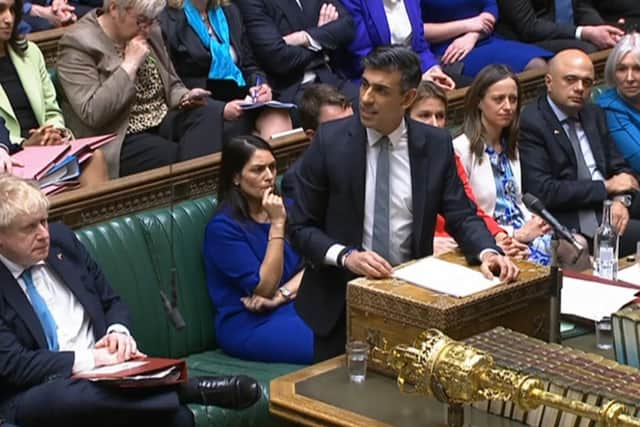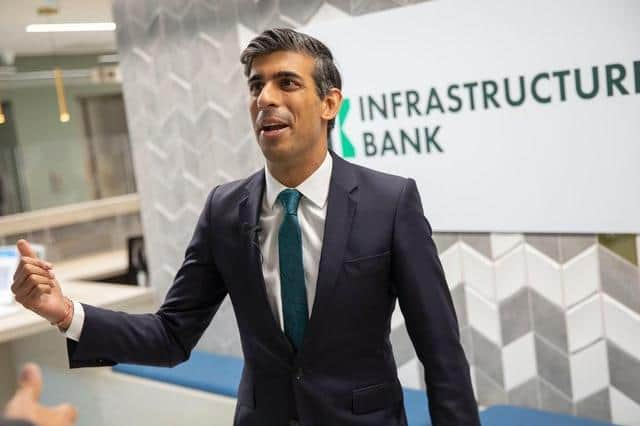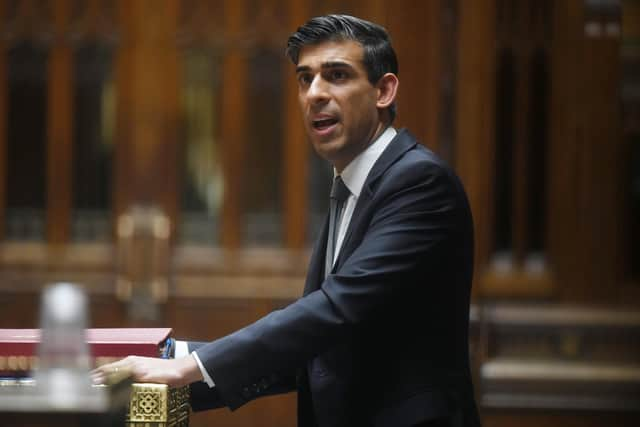Rishi Sunak's Spring Statement shows us that we are all on our own when it comes to the cost of living crisis - Sarah Coles
As he sat down, it became clear we would need to rely on our own financial first aid kit.
While raising the National Insurance threshold will undo some of the financial damage of the hike in the tax rate, and cutting income tax in two years’ time offers some hope for the future, it’s not going to come close to covering the extra cost of price rises in the immediate future.
Advertisement
Hide AdAdvertisement
Hide AdAccording to the Office for Budget Responsibility we’re still going to see living standards drop 2.2 per cent next year – the biggest drop in a single year since records began in the mid-1950s.


The biggest announcement as far as most people are concerned is the decision to raise the threshold at which National Insurance is paid, to match the personal allowance at £12,570.
This will help mitigate some of the pain caused by hiking the tax rate in April. It will lift 2.2 million people out of paying the tax entirely, and will cut National Insurance for 70 per cent of those who currently pay it – even after the tax hike is taken into consideration.
Higher earners will still end up with a higher tax bill even after the threshold moves, and even if you’re set to benefit from the change, it’s worth bearing in mind that there’s going to be an odd interim period, between April and July, when the tax rate is hiked, and is payable on everything over £9,880. It means bills will rise, and then fall, so you need to be prepared for less cash on payday during this period.
Advertisement
Hide AdAdvertisement
Hide AdIf you’re keen not to pay more NI, and your employer operates a salary sacrifice scheme, there is an alternative. In some cases, the Government will let you give up a portion of your salary, in return for pension payments that are free of tax and National Insurance. This won’t boost your take-home pay, but will cut your tax bill.


The shift in the threshold is welcome, but it’s an odd move, especially when seen in the light of the fact the Chancellor also announced that from 2024, the basic rate of income tax will fall from 20p in the pound to 19p. So, effectively, we’re going to get a National Insurance rate hike, because it has been deemed to be essential for improvements to health and social care, which couldn’t be funded without it.
However, we’re also going to get a threshold hike, which wipes out billions of pounds of the extra money.
Then two years down the line from a hike in a tax on earned income, we’ll get a cut in income tax. It looks like taking with one hand and giving with another, but in fact it’s specifically taking from those who make earned income, and giving to those who get income from other sources – including property.
Advertisement
Hide AdAdvertisement
Hide AdThis is a very specific decision, as is the choice to postpone the tax cut until we get closer to an election, rather than at a time when living standards are falling.


More immediately, the Chancellor announced a temporary 5p cut in fuel duty until next March. Unfortunately, while it’s better than a poke in the eye with a sharp stick, it’s a drop in the ocean. Currently, fuel duty costs around 58p a litre, and VAT almost 28p per litre. On a 55-litre tank, £47.30 is tax. The cut would mean the tax take drops just £3.30.
But the biggest thing in the Statement was an absence: the lack of help available for millions of people facing horrendous hikes in their energy bills, especially those on low incomes and retirees. Sunak announced another £500m for the Household Support Fund, administered through the councils, to help people in really dire circumstances, but for the vast majority of cash-strapped billpayers, there was nothing new.
Those on council tax bands A-D will still get the £150 rebate in April, and we’ll all get the unpopular burn-now-pay-later £200 loan in October, but other than that we’re on our own.
Advertisement
Hide AdAdvertisement
Hide AdTaken together, all the help that has been announced still leaves us having to find hundreds of pounds more for our energy bills from April. And if prices are hiked again in October as expected, we’ll need to find hundreds of pounds more.
For those on higher incomes, with some wriggle room, and luxuries left to cut, there may well be things they can do without. If you haven’t yet drawn up a budget to see where the savings are lurking, now is the time.
However, those whose finances are already on a knife edge, face the misery of choosing between cutting essentials or racking up debts that could make things even worse in the long run.
If you’re in this position, it’s worth talking to a charity like Citizens Advice. They will know whether you can get more help from the Government, or from alternative schemes run by charities and other organisations.
At the very least, you’ll be able to talk to someone who understands what you’re going through, and can help you find any support that’s available.